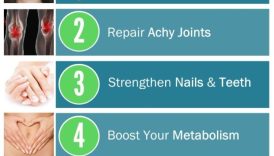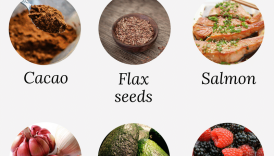Fueling Your Body Right: Nutrition Tips for a Healthier You

In today’s fast-paced world, maintaining a balanced diet can sometimes feel overwhelming. With the myriad of food choices and conflicting nutritional advice out there, it’s easy to become confused about what constitutes healthy eating. That’s why understanding the fundamentals of nutrition has never been more important.
- Fueling Your Body Right: Nutrition Tips for a Healthier You
- Why Nutrition Matters
- Understanding Macros and Micros
- Importance of Macronutrients
- Incorporating Micronutrients in Your Diet
- Hydration for Optimal Health
- The Importance of Staying Hydrated
- Tips for Staying Hydrated
- Fueling Your Workouts
- Pre-Workout Nutrition
- Post-Workout Recovery Foods
- Healthy Snacking Habits
- Why Healthy Snacks Matter
- Smart Snack Choices
- Meal Planning for Success
- The Benefits of Meal Planning
- Simple Meal Planning Tips
- Superfoods to Boost Your Nutrition
- What Are Superfoods?
- Top Superfoods to Consider
- Mindful Eating Practices
- What Is Mindful Eating?
- Simple Techniques to Practice Mindful Eating
- Dietary Supplements for a Balanced Diet
- Why Consider Supplements?
- Common Supplements to Consider
- Eating Well on a Budget
- Smart Shopping Strategies
- Affordable Ingredients to Stock Up On
- Nutrition for Improved Sleep
- Foods That Promote Better Sleep
- Foods to Avoid Before Sleep
- Navigating Food Choices While Dining Out
- Tips for Healthier Choices at Restaurants
- Making Smart Substitutions
Why Nutrition Matters
Good nutrition not only fuels our bodies but also supports mental clarity and emotional well-being. Consider how a well-timed snack before a workout can enhance performance. Whether you’re an athlete or just someone looking to stay healthy, making informed food choices is key. To simplify the journey toward better nutrition, this guide will cover essential topics like:
- Macronutrients and micronutrients
- Proper hydration
- Meal planning strategies
- Healthy snacking options
By the end of this series, you’ll be equipped to make more intentional choices about your diet!
Understanding Macros and Micros
With a clear grasp of why nutrition matters, let’s delve deeper into the core components of our diets: macronutrients and micronutrients. These are the building blocks of nutrition that play vital roles in our overall health.
Importance of Macronutrients
Macronutrients are the primary nutrients our bodies need in larger quantities, including proteins, carbohydrates, and fats. Each serves distinct functions:
- Proteins: Essential for muscle repair and growth. Think about how a protein smoothie after a workout aids in recovery.
- Carbohydrates: The body’s main energy source. For instance, whole grains provide lasting energy for those busy mornings.
- Fats: Important for cell health and hormone production. Avocados and nuts are excellent sources that promote satiety.
Incorporating Micronutrients in Your Diet
Micronutrients, on the other hand, include vitamins and minerals, which are needed in smaller amounts but are just as crucial. Incorporating them can be simple:
- Fruits and Vegetables: Aim for a colorful plate to ensure a range of vitamins and minerals.
- Whole Foods: Foods like legumes and nuts are both tasty and nutrient-dense.
By blending both macros and micros into your meals, you pave the way for a balanced and holistic approach to nutrition!
Hydration for Optimal Health
Having a solid understanding of macronutrients and micronutrients sets the stage for another critical aspect of nutrition: hydration. Water is often an overlooked yet essential component of our diets, playing a pivotal role in nearly every bodily function.
The Importance of Staying Hydrated
Consider how even mild dehydration can impact your mood and energy levels. A simple example is that mid-afternoon slump many experience; sometimes, a glass of water might be all that’s needed to perk up! Here’s why hydration is vital:
- Supports Digestion: Water helps break down food, aiding nutrient absorption.
- Regulates Temperature: Staying hydrated maintains your body temperature, especially during exercise.
- Boosts Cognitive Function: Proper hydration enhances focus and reduces fatigue.
Tips for Staying Hydrated
To ensure you’re meeting your hydration needs, consider these practical tips:
- Carry a reusable water bottle throughout your day.
- Set reminders on your phone to drink water regularly.
- Infuse your water with fruits for added flavor and nutrients.
By consciously focusing on hydration, you can elevate your overall health and well-being!
Fueling Your Workouts
Now that we’ve explored the importance of hydration, it’s time to discuss fueling your workouts effectively. Whether you’re hitting the gym or going for a run, what you eat can significantly influence your performance and recovery.
Pre-Workout Nutrition
Prior to exercising, it’s vital to provide your body with the right nutrients. Consider your favorite pre-workout snack or meal. For many, easily digestible carbohydrates paired with a bit of protein might do the trick. Here are a few options:
- Banana with almond butter: Quick energy from the fruit and protein from the nut butter.
- Greek yogurt with berries: A delicious mix that packs essential nutrients.
- Oatmeal: The ultimate slow-burning energy source!
Aim to consume your pre-workout meal about 30-60 minutes before exercising for optimal results.
Post-Workout Recovery Foods
Equally important is what you eat after your workout. After breaking a sweat, your body craves nourishing foods to aid recovery. For instance:
- Protein shakes: An easy option that helps in muscle recovery.
- Chicken and quinoa: A fulfilling meal to replenish energy stores and repair muscles.
- Smoothies: Blend fruits, vegetables, and protein for a balanced recovery drink that tastes great.
Incorporating these foods will not only speed up recovery but also prepare you for your next workout session!
Healthy Snacking Habits
Building on the importance of proper nutrition before and after workouts, let’s explore healthy snacking habits. Snacks can be your secret weapon for maintaining energy levels and avoiding unhealthy food choices throughout the day.
Why Healthy Snacks Matter
Snacking strategically can prevent feelings of hunger that lead to impulsive eating. Have you ever reached for a giant slice of cake because you skipped lunch? That’s where mindful snacking comes into play! Here are a few reasons why healthy snacks are essential:
- Sustains Energy: Keeps blood sugar levels stable.
- Boosts Metabolism: Frequent small meals can enhance metabolic rate.
- Improves Mood: A nutritious snack can keep your spirits high.
Smart Snack Choices
Opt for nutrient-dense snacks that are easy to prepare and delicious. Some great options include:
- Veggies and hummus: Crunchy and satisfying.
- Nuts and dried fruits: A powerful mix of healthy fats and vitamins.
- Cottage cheese with fruit: High in protein and calcium.
By embracing healthy snacking habits, you can maintain your energy and stay on track toward your wellness goals!
Meal Planning for Success
Having established the significance of healthy snacking habits, let’s shift our focus to meal planning—a powerful strategy to ensure you stay aligned with your nutritional goals. Proper meal planning not only saves time but also helps maintain a balanced diet.
The Benefits of Meal Planning
When you plan your meals, you’re setting yourself up for success. Think back to the last time you were prepped for the week; didn’t it feel great to have your meals ready? Here are some key benefits:
- Reduces Stress: No more last-minute decisions about what to eat.
- Saves Money: Buying in bulk and minimizing food waste can significantly lower grocery bills.
- Boosts Nutrition: You’re more likely to incorporate a variety of foods and avoid unhealthy choices.
Simple Meal Planning Tips
To get started with meal planning:
- Set aside time weekly: Dedicate a couple of hours to plan and prep.
- Create a menu: List your meals for the week; be sure to include snacks.
- Batch cook: Prepare larger quantities to save time during busy days.
By implementing these meal planning tips, you’ll be better prepared to nourish your body and stay on track with your health objectives!
Superfoods to Boost Your Nutrition
Following a solid meal planning strategy, it’s time to highlight the concept of superfoods—nutrient-packed options that can elevate your diet and enhance your overall well-being. Incorporating these into your meals can provide significant health benefits.
What Are Superfoods?
Superfoods are typically rich in vitamins, minerals, and antioxidants, which can boost your health. They often come from whole, minimally processed foods, and adding them to your diet is generally an excellent choice. Remember the last time you enjoyed a colorful salad? By aligning your meals with superfoods, you’ll boost their nutritional value.
Top Superfoods to Consider
Here are some top contenders you might want to start using:
- Quinoa: A complete protein packed with fiber and essential amino acids. Great as a base for salads!
- Kale: Known for its high vitamin K and antioxidant content, it’s fantastic in smoothies or sautéed as a side.
- Berries: Packed with antioxidants, they make a perfect snack or addition to yogurt.
By incorporating these superfoods into your diet, you can take a significant step towards achieving better nutrition and overall health!
Mindful Eating Practices
With a focus on superfoods, let’s now explore the power of mindful eating practices. This approach encourages you to be present and engaged during meal times, enhancing both your eating experience and your relationship with food.
What Is Mindful Eating?
Mindful eating involves paying attention to the taste, texture, and aroma of your food, as well as recognizing your body’s hunger and fullness cues. It can turn a routine meal into an enriching experience. Have you ever realized you were too busy on your phone to notice how delicious your meal was? Mindful eating helps change that!
Simple Techniques to Practice Mindful Eating
Here are some effective techniques to incorporate into your daily routine:
- Slow Down: Chew your food thoroughly and savor each bite—aim for at least 20 minutes per meal.
- Eliminate Distractions: Turn off screens and focus solely on your meal.
- Listen to Your Body: Tune in to hunger and fullness signals to avoid overeating.
By adopting these mindful eating practices, you can cultivate a healthier relationship with food and enhance your overall enjoyment of meals!
Dietary Supplements for a Balanced Diet
Transitioning from the concept of mindful eating, let’s examine dietary supplements and their role in achieving a balanced diet. While whole foods should always be the foundation of your nutrition, supplements can help bridge any gaps in your diet.
Why Consider Supplements?
Many people face challenges in getting all essential nutrients from food alone, whether due to time constraints, dietary restrictions, or lifestyle choices. Personally, I’ve found that a daily multivitamin helps me feel more energized; it’s a simple way to support overall health. Here’s when it might make sense to consider supplements:
- Busy Lifestyles: When cooking balanced meals isn’t always feasible.
- Specific Diets: Vegans and vegetarians might need vitamin B12 or iron.
- Age Factors: Older adults may benefit from additional calcium or vitamin D.
Common Supplements to Consider
A few popular options include:
- Multivitamins: To cover a broad range of nutrients.
- Omega-3 Fatty Acids: For heart health and anti-inflammatory benefits.
- Vitamin D: Especially important in colder months or for those who don’t get enough sunlight.
By thoughtfully incorporating dietary supplements, you can effectively support your nutritional needs while still prioritizing whole foods in your diet!
Eating Well on a Budget
Having discussed dietary supplements, let’s now turn our attention to eating well on a budget. Maintaining a healthy diet doesn’t have to break the bank; with the right strategies, you can enjoy nutritious meals without overspending.
Smart Shopping Strategies
When I first started trying to eat healthy, I was amazed at how much money I saved by being strategic with my shopping. Here are some tips to help you maintain a budget-friendly diet:
- Plan Your Meals: Just like meal planning we discussed earlier, create a weekly menu to avoid impulse buys.
- Buy in Bulk: Items like grains, nuts, and dried beans are often cheaper when purchased in larger quantities.
- Seasonal Produce: Purchase fruits and vegetables that are in season for better quality and lower prices.
Affordable Ingredients to Stock Up On
Consider incorporating these budget-friendly staples into your meals:
- Rice and Quinoa: Versatile and filling.
- Frozen Vegetables: Nutrient-rich options that last longer.
- Canned Beans: Excellent source of protein and fiber—perfect for salads, soups, or stir-fries.
By implementing these strategies, you can enjoy delicious, nutritious meals while staying within your budget!
Nutrition for Improved Sleep
Following our discussion on eating well on a budget, let’s explore how nutrition can impact your sleep quality. Many people underestimate the connection between diet and sleep, but what you consume can significantly influence how well you rest each night.
Foods That Promote Better Sleep
I’ve personally noticed that certain foods help me drift off to sleep more easily. Here are some nutritional powerhouses to consider:
- Complex Carbohydrates: Foods like whole grains can help your body produce serotonin, a hormone that promotes relaxation. Think oatmeal before bed!
- Lean Proteins: Foods like turkey contain tryptophan, an amino acid associated with drowsiness.
- Magnesium-Rich Foods: Spinach, nuts, and seeds contribute to muscle relaxation and better sleep cycles.
Foods to Avoid Before Sleep
Conversely, some foods can hinder sleep:
- Caffeine: Avoid coffee and energy drinks in the afternoon.
- Sugary Snacks: These can lead to spikes in energy and disrupt your sleep.
By being mindful of what you eat, you can set the stage for a restful night’s sleep, helping you feel refreshed and ready for the day ahead!
Navigating Food Choices While Dining Out
Now that we’ve discussed nutrition for improved sleep, let’s dive into navigating food choices while dining out. Eating at restaurants can pose a challenge for those trying to maintain a healthy lifestyle, but with a few strategies, it’s entirely manageable.
Tips for Healthier Choices at Restaurants
I’ve found that planning ahead makes dining out a much more enjoyable experience. Here are some practical tips to help you make healthier decisions:
- Review the Menu in Advance: This helps you identify healthier options before you arrive.
- Look for Keywords: Choose dishes labeled “grilled,” “roasted,” or “steamed” instead of “fried” or “breaded.”
- Watch Portion Sizes: Consider sharing an entrée or asking for a half-portion if available.
Making Smart Substitutions
Don’t hesitate to customize your order to align with your health goals:
- Swap fries for a side salad: This simple change increases your vegetable intake.
- Request sauces on the side: This allows you to control how much you consume.
By being proactive and mindful of your choices, dining out can still be a fun and healthy experience, allowing you to enjoy good food and company without derailing your nutrition!





